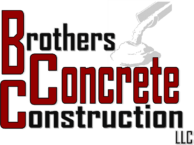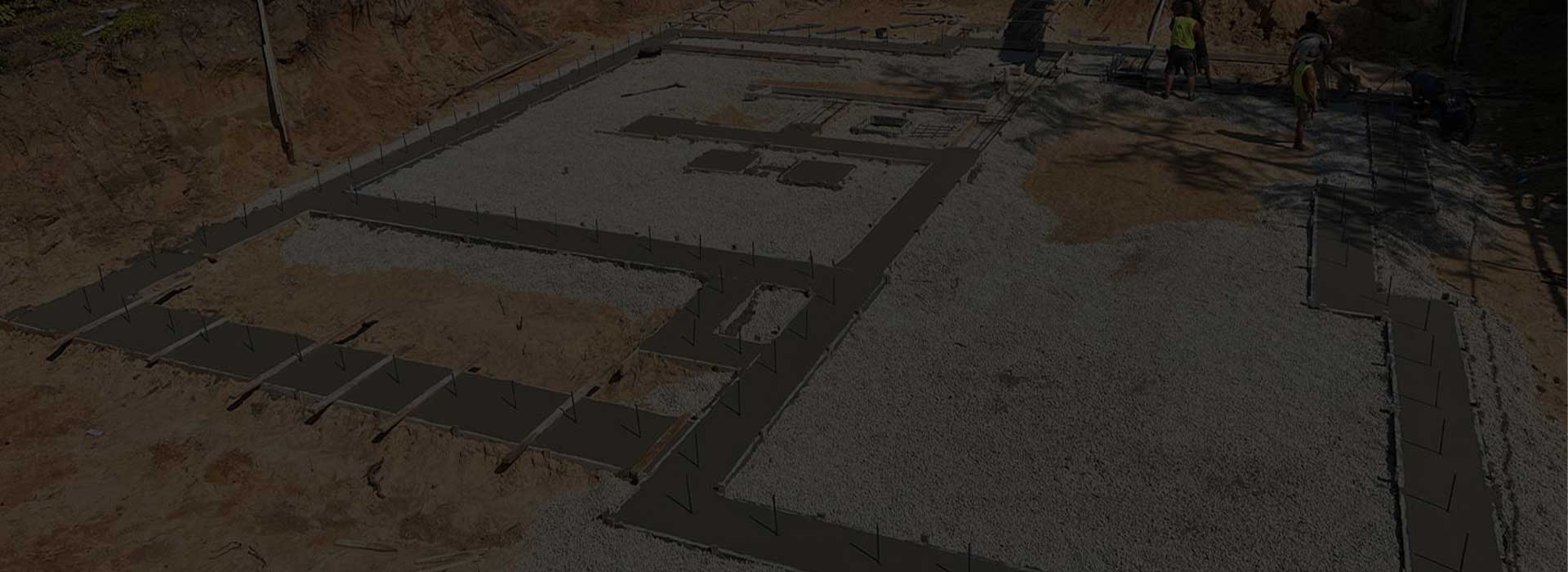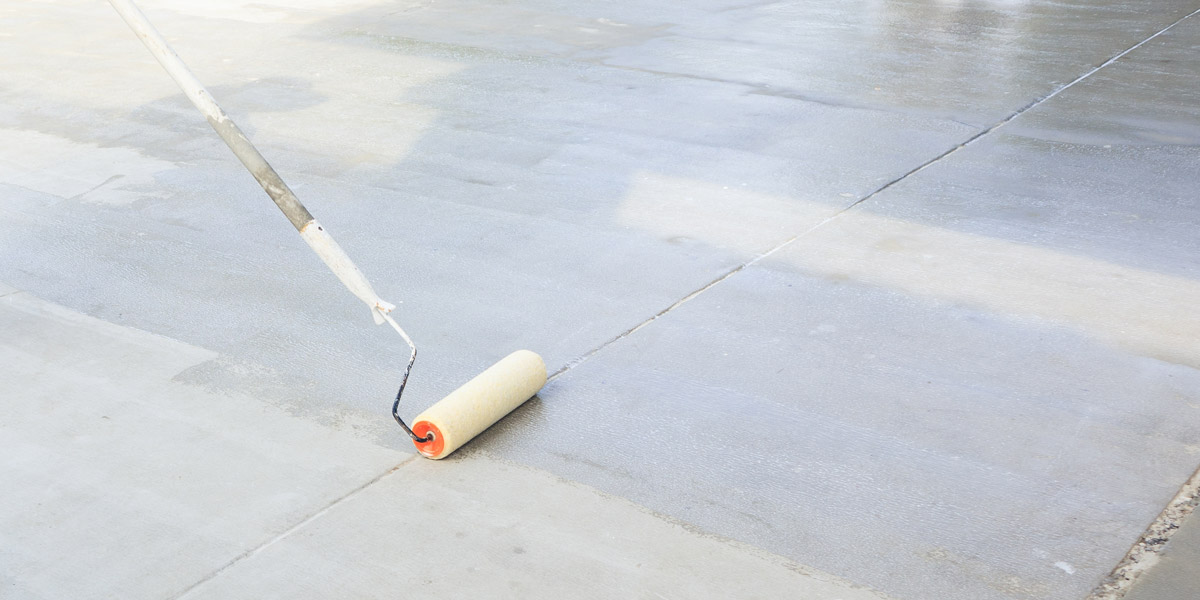
15 Oct Tips for How to Choose the Best Driveway Surface: Why Concrete Stands Out
Choosing the Best Driveway Surface
Choosing the right driveway surface is important for both aesthetics and functionality.
With a wide range of materials available, it can be overwhelming to determine which one best suits your home or business’ needs.
In this guide, the experts at Brother’s Concrete will help you evaluate the options and make an informed decision. While budget may be a concern for some, it’s also important to keep in mind the long-term benefits of a more durable driveway surface such as concrete driveways.
6 Options for Driveway Surfaces
Let’s walk through 6 different considerations when it comes to choosing the best driveway surface for your home or business:
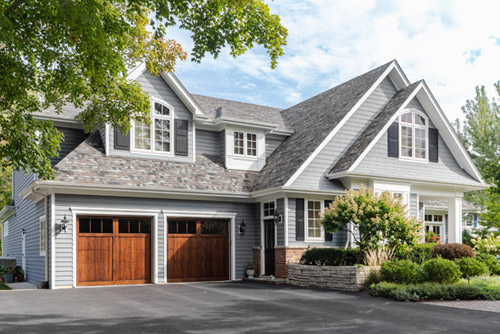
1. Consider Your Budget
The first step in choosing a driveway surface is determining your budget. Prices can vary significantly based on the material, installation costs, and long-term maintenance. Here’s a rough breakdown:
- Asphalt: Generally affordable, ranging from $2 to $5 per square foot.
- Concrete: More expensive, typically between $3 to $10 per square foot, depending on finish and reinforcement.
- Gravel: The least expensive option, often around $1 to $3 per square foot, but can require more maintenance.
- Pavers: Higher initial cost, usually $10 to $25 per square foot, but they offer longevity and aesthetic appeal.
- Stamped Concrete: Priced similarly to pavers, but offers a unique look, typically around $8 to $20 per square foot.
2. Evaluate Your Climate
Your local climate plays a significant role in the durability and maintenance of your driveway surface:
- Cold Climates: Asphalt can crack in freeze-thaw cycles, while concrete may be more susceptible to damage from ice. Gravel can shift but is generally resilient.
- Hot Climates: Asphalt can soften in extreme heat, while concrete may require sealing to prevent surface damage. Pavers can handle heat well but may become hot underfoot.
- Rainy Areas: Drainage is crucial. Gravel allows for better drainage, while concrete may need proper sloping to avoid pooling water.
3. Assess Usage and Traffic
The next step is knowing how much traffic to expect for your driveway’s surface. You’ll need to consider how you plan to use your driveway:
- Light Traffic: If your driveway will see minimal use, gravel or decorative pavers may suffice.
- Heavy Traffic: For frequent vehicle access or larger vehicles, concrete or asphalt provide the durability needed.
- Parking Needs: If you have multiple cars, a surface with a solid foundation and good load-bearing capacity is essential.
4. Maintenance Requirements
Different surfaces require varying levels of upkeep, which can significantly impact long-term costs and convenience:
- Concrete: Concrete stands out as one of the best options due to its durability and low maintenance requirements. While it does require sealing every few years—especially in colder climates where freeze-thaw cycles can cause cracking—its long lifespan often makes the upkeep worthwhile. Unlike asphalt, concrete is less prone to surface damage from heat, and its resistance to stains can be enhanced through proper sealing. Furthermore, concrete’s smooth surface makes it easier to clean, requiring only occasional washing to remove dirt and debris.
- Asphalt: This surface is relatively affordable but requires regular maintenance to keep it in good condition. Asphalt typically needs sealing every 3-5 years to prevent cracks and deterioration from UV rays and water. Without proper maintenance, it can become susceptible to damage, especially in extreme weather conditions. Additionally, if cracks do form, they can expand and lead to more extensive repairs, increasing long-term costs.
- Gravel: While gravel is easy to install and repair, it does require more frequent maintenance. Regular raking is necessary to keep the surface even, and over time, you may need to replenish the gravel to fill in any gaps or areas that have been displaced by vehicle traffic. This can lead to additional costs and effort in maintaining an aesthetically pleasing and functional driveway.
- Pavers: Pavers require minimal maintenance, but they are not without challenges. Weeds can grow between the stones, necessitating occasional weeding or the use of weed barriers. Additionally, if a paver becomes damaged, replacing it is straightforward, but the surrounding stones may need to be realigned, adding to the maintenance effort.
- Stamped Concrete: This option provides a unique aesthetic appeal but does require specific upkeep. To maintain its beautiful patterns and colors, stamped concrete needs sealing and cleaning to prevent wear and staining. While it can be more maintenance-intensive than standard concrete, the overall durability and visual impact make it a popular choice.
We detail more about concrete maintenance in our article on concrete care here.
5. Aesthetic Appeal
The appearance of your driveway significantly contributes to your home’s curb appeal. Here’s how various materials stack up, with a focus on the versatility of concrete:
- Concrete: Concrete is incredibly versatile and can be tailored to fit a wide range of design preferences. It is available in various colors and finishes, including smooth, textured, stamped, or stained options. Stamped concrete can mimic the look of more expensive materials like brick or stone, providing a sophisticated appearance without the high cost. This versatility allows homeowners to create a custom look that complements their home’s architectural style.
- Asphalt: While asphalt is typically a uniform black, it can be sealed to achieve a cleaner, more polished appearance. However, it lacks the aesthetic flexibility that concrete provides, and its darker color can make it absorb more heat.
- Pavers: Pavers offer numerous shapes, colors, and patterns, allowing for a high degree of customization. They can create intricate designs and borders, making them an attractive choice for those looking to make a statement. However, the need for regular maintenance to control weeds can detract from their appeal.
- Gravel: Gravel provides a rustic, natural look that can be charming in certain settings. However, color options are limited, and its loose nature can lead to displacement over time, affecting its visual consistency.
6. Installation Process
The complexity of the installation can vary by material, impacting both time and costs:
- Gravel: This is the easiest and quickest option to install, requiring little more than leveling the ground and spreading the gravel. However, to prevent shifting and ensure stability, a solid base is essential. While DIY installation is possible, professional help may be needed to ensure the foundation is properly prepared.
- Asphalt: Installing asphalt is more complex and requires a professional to ensure proper compaction and drainage. The process involves heating the asphalt mix and laying it down, which can be challenging for DIYers. Proper installation is crucial to prevent future cracking and water pooling.
- Concrete: Concrete installation requires careful planning and skilled professionals, especially for decorative finishes. The process involves pouring, leveling, and potentially stamping or staining the surface. Proper curing time is essential to ensure strength and durability, making professional installation highly recommended.
- Pavers: Like concrete, paver installation requires expertise to create a solid base and ensure proper alignment. The stones must be carefully laid out, and sand must be used to fill the joints. While DIY installation is possible, hiring professionals often leads to better results and longevity.
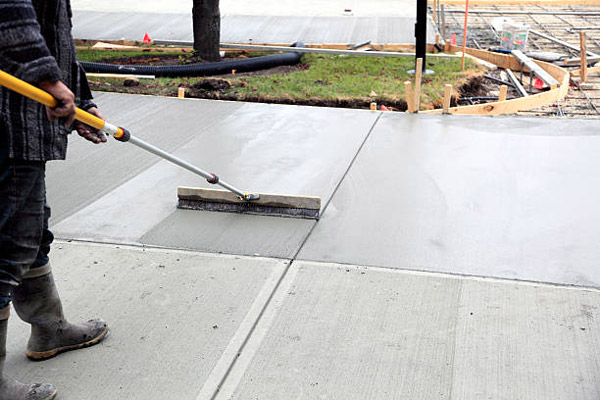
Choosing the Best Driveway Surface: In Conclusion
At Brother’s Concrete, we understand that choosing the best driveway surface involves weighing factors such as budget, climate, usage, maintenance, aesthetics, and installation.
That’s why we recommend taking your time to research and consider how each driveway material aligns with your needs and preferences.
Consulting with local concrete company can also provide valuable insights and help ensure a successful installation. With the right choice, your driveway can enhance the beauty and functionality of your home for years to come!
Brother’s Concrete proudly provides stamped, stained, and regular concrete services for home and business owners alike!
Contact us for Concrete Driveway Services!
If you’re not sure of which driveway type to choose, our concrete contractors can help! We cover more about whether you should choose concrete or asphalt in our article linked here. With Brother’s Concrete, you can trust that your concrete driveway will be built to last, enhancing your home or business for decades to come!
Contact Brother’s Concrete today to learn more about our concrete driveway services and how we can help transform your property! We serve customers throughout Wild Rose, Waupaca, Wautoma, and Steven’s Point, WI.
